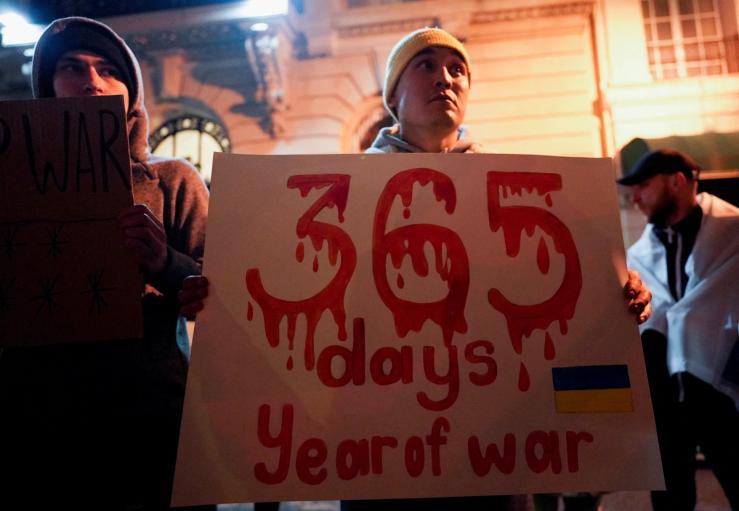The News
Europeans across the political spectrum are more strongly united in their support for Ukraine, but the unity could be “blown apart” by inflation, the politics of migration, and changes in America’s position on the war, according to a survey from the European Council of Foreign Relations (ECFR) released Wednesday.
ECFR gathered public opinion data from 10 countries across the continent, including Britain, Spain, France, and Italy, which revealed the “surprising unity and determination” to support Kyiv in the war.
But as economic pressures in the continent loom and the migration crisis worsens, foreign policy experts say that this European consensus could be “torn apart” in the months to come.
Here are some key takeaways from the report:
- Russia is widely viewed as an “adversary” or “rival” by every European country that were surveyed.
- 47% respondents across the 10 countries now see Russia as “weak” or “weaker” compared to the start of the war.
- Ukraine’s “doggedness” and successes on the battlefield have won over previously pessimistic supporters.
- Every European country, except Italy, feels that the European Union is stronger than before.
- Perception of the U.S. has improved –– with people saying it is stronger than a year ago.
- Regardless of political affiliation, people think Ukraine should reclaim all the territory it lost.
- Concerns about nuclear weapons have waned, while worries about the cost-of-living crisis have increased.
Know More
According to the report’s authors, Ivan Krastev and Mark Leonard, the agreement between political parties stems from a shift in mentality. European liberals have rediscovered “the value of hard power,” while nationalists have come to terms with combined European action.
Still, some countries remain anomalies. The nationalist Brothers of Italy party said that if given a choice, they would prefer an end to the war as soon as possible — even if it meant Ukraine had to cede territory. Italy was also one of the few countries which had a divided opinion on whether Moscow was “stronger” a year after launching its invasion of Ukraine.
As the U.S. continues to take a leading role in supporting Kyiv, most countries see Washington as an “ally” and “necessary partner,” especially those in Denmark and Britain.
Krastev and Leonard believe that in order for the EU’s public opinion to remain unanimous on Ukraine, the next 18 months will be crucial. They recommended that European governments should implement policies to manage the cost-of-living and refugee crises while continuing to aid Kyiv, and ensuring that tensions across the Atlantic are kept in check.


